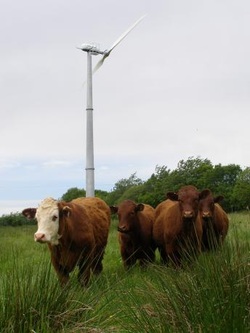North Devon Biosphere Reserve
How to stem the outflow of £300 M per annum spent on energy and turn it into local investment and good resource management?
The Biosphere Partnership is leading the development of a Sustainable Energy Action Plan (SEAP) for the Biosphere as part of a wider strategy for net zero carbon Biosphere Reserve.
The SEAP will look at patterns of energy use and generation, the policy framework and tools to make the changes required to meet the UK Governement’s carbon reduction targets on a Biosphere scale.
The Biosphere Partnership has produced an energy plan specifically for North Devon Biosphere. This was funded through the EU Interreg Funded programme called Sustainable Energy Across the Common Space. The study takes a detailed look at the energy sources and use across the Biosphere Region and sets the direction for activity for conserving energy and reducing energy demand. The study explores the renewable energy options for the area and how we might do our part to meet international obligations.
Some key points are:
- The amount of money spent on energy within the plan area each year is in the order of £300M. This is the equivalent of 15500 full time jobs. This expenditure is not held within the area but is instantly paid outside to energy companies.
- Approximately 9% of the homes in the area are described as being in fuel poverty according to the latest definitions. Most of these are in areas where there is no mains gas supplied to the house. Therefore reducing energy demand for expensive energy sources in these homes will support the alleviation of poverty in the area.
- 31% of the energy use in the area is on domestic heating and lighting and accounts for 27% of the area’s expenditure. Therefore retrofitting energy efficiency and fuel switching will make a significant reduction in overall expenditure and leakage from the economy.
- There is much more resource available for wind, domestic solar PV, biomass, anaerobic digestion and waste to energy to meet the gap totalling 1,913,000,000 KWh potential.
- Investment via and from local community initiatives will be the most economically effective way of recirculating funds and preventing leakage outside of the area.
More information: North Devon Biosphere
Sustainable Energy Across the Common Space programme.
















